Recent reports suggest that migrants in Mauritania are increasingly at risk of being stopped, arrested and possibly deported, many sent back over the border to Senegal and some to neighboring Mali.
Senegal and Mauritania share a 742-kilometer land border. The two countries lie along the route many migrants take towards Europe. An operation to expel migrants is currently under way in Mauritania. Hundreds of migrants, many of them from neighboring West African countries, like Senegal and Mali, who were in Mauritania without papers have been rounded up, and sent back over the borders, reported DW’s correspondent in Mauritania, Diagana Khalilou, last week.
Human rights organizations have described the expulsion campaign as "brutal," and accused Mauritania of taking on the role of "policeman for the European Union."
The authorities in Mauritania’s capital Nouakchott responded, telling DW, "all of the actions we have undertaken with regard to migrants has been done in full respect of their human rights and dignity."
Many of those expelled from Mauritania have taken refuge in the Senegalese border town of Rosso, on the banks of the Senegal river that separates the two countries. A group of around ten Guineans spoke to the French international broadcaster Radio France International (RFI) recently.
Read AlsoSpain seeks to stem migration with vocational training in West Africa
'They asked me: 'Are you a foreigner?' and arrested me'
Diallo arrived two days previously in Rosso. He shows his documents issued by the UNHCR. Diallo is originally from Guinea and was expelled from Mauritania. He says he was stopped as he was buying something to eat in the capital Nouakchott. "They asked me, 'are you a foreigner?' and I answered 'yes,' and they just arrested me."
Diallo says he was in prison for two days. "If you don’t have money, you can’t buy anything to eat, then you could die in that cell," he explains to RFI.
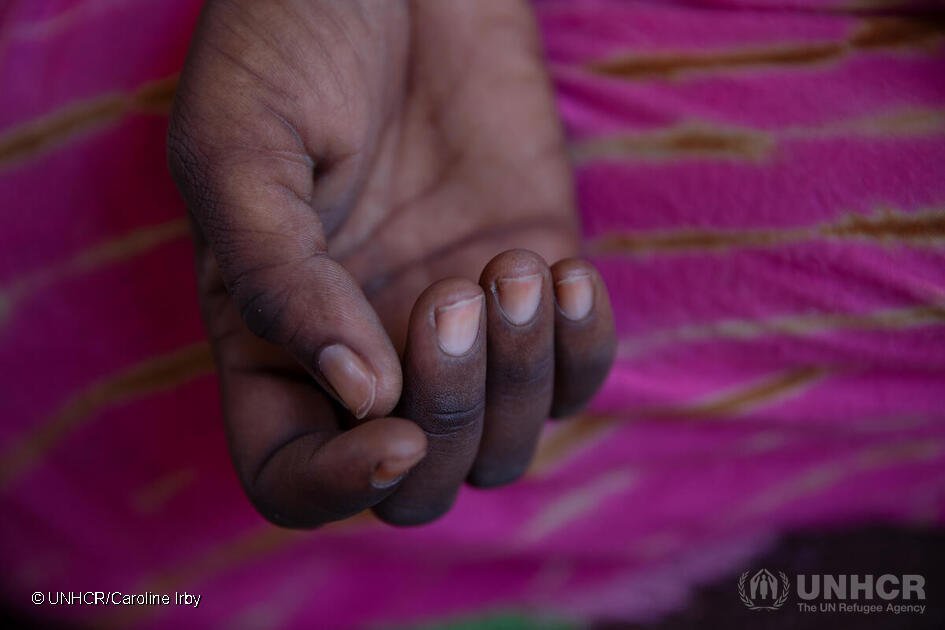
Camara, dressed in flowing Mauritanian robes, is pregnant and already the mother of a two-year-old. "They came and took me from my house. I was lying down, they knocked, when I opened the door, they took me, handcuffed me and took me to prison. I spent a week in prison. There was nothing to eat, and they beat the men there," recounts the young woman.
Camara says all her belongings were taken. Camara, along with tens of other migrants, all expelled from Mauritania have been camping in the courtyard of a house in Rosso. They all have stories of mistreatment at the hands of the authorities in Mauritania, reports RFI.
Read AlsoRecord number of migrant deaths in 2024 as Atlantic crossings to Spain soar
'Why do they treat us like that?'
Sylla, another migrant, was working as a hairdresser. He thinks that the Mauritanian authorities are racist towards migrants from Guinea. "Why do they treat us like that?" he asks. Sylla, his wife and son were all in Mauritania and had been used to renewing their residency cards there and trying to work. But he claims that more recently the authorities just stopped renewing the cards. "I waited for more than a month, I asked and asked after I lost my residency card, and they just refused to give me a new one."
Sylla told RFI he is hoping to return to Mauritania as soon as he can to retrieve his wife and son, who are still there. He has asked for diplomatic help from his own country, but so far has not received a reply. He doesn’t want to return to Guinea without his family and so is waiting in Rosso in the hope things will change.
Sylla is one of tens of thousands of migrants who either live and work in Mauritania or were there for some time before continuing their journeys towards Europe. The majority of them come from countries like Guinea, Senegal and Mali. Many work in Mauritania as construction workers, and domestic servants, or run small businesses, like hairdressers.
The latest expulsion campaign, reports DW, has been met with varied reactions among Mauritania’s own population. Some Mauritanians have been talking about a "demographic invasion," and fear "migration waves" from their neighbors. Others though are worried by reports that the expulsion and crackdown has been violent and is uniquely targeting fellow sub-Saharan Africans.
Read AlsoRecord toll for migrants missing at sea: Spanish NGO
'We are the most welcoming country'
Mohamed Salem Ould Merzouk, Mauritanian Minister for Foreign Affairs responded to reports of violence, telling DW, "we are the most welcoming country in terms of the ratio of migrants to our own population. Everything we do is done in full respect of the law."
However, a local human rights organization, AMDH (L’Association mauritanienne des droits de l’Homme – The Mauritanian Association for Human Rights) has accused the European Union for its role in these actions, reports DW.
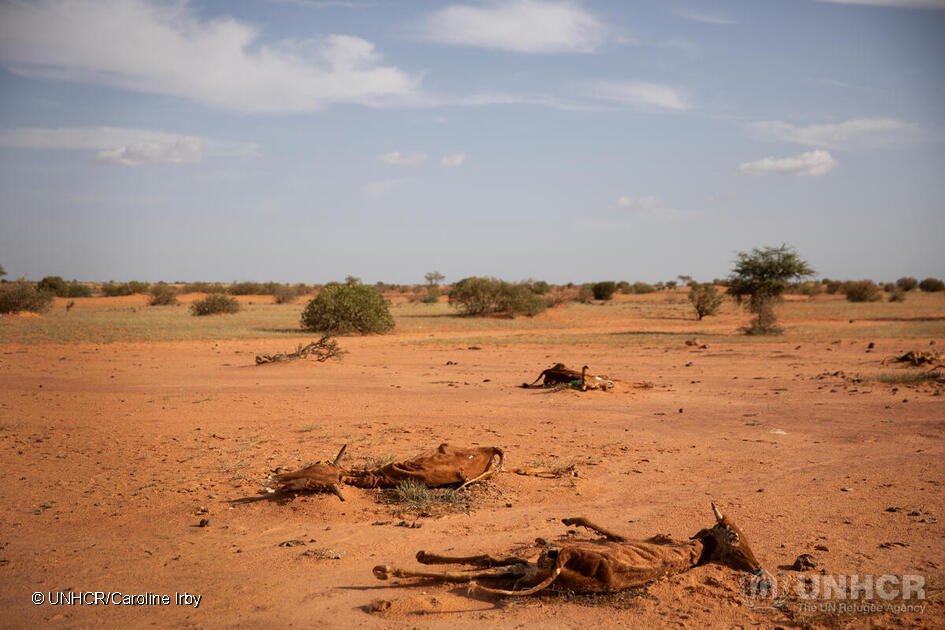
On March 7, 2024, the European Commission launched a new migration partnership with Mauritania. At that time, according to a press release from the European Commission, the then Commissioner for Home Affairs and Migration, Ylva Johansson, signed a joint declaration with Mauritanian Minister of the Interior and Decentralisation Mohamed Ahmed Ould Mohamed Lemine.
Johansson, alongside the Spanish Interior Minister Fernando Grande-Marlaska, and the Belgian State Secretary for Asylum and Migration at the time, Nicole de Moor, traveled to Nouakchott to meet the Mauritanian President Mohamed Ould Ghazouani.
Read AlsoSpain and Mauritania announce cooperation on migration
EU funding for Mauritania
European Commission President Ursula von der Leyen had already traveled to Mauritania in February last year, and announced the mobilization of 210 million euros in funding for Mauritania, to "support migration management, including the fight against migrant smuggling, as well as promoting security and stability, humanitarian aid for refugees and support to host communities."
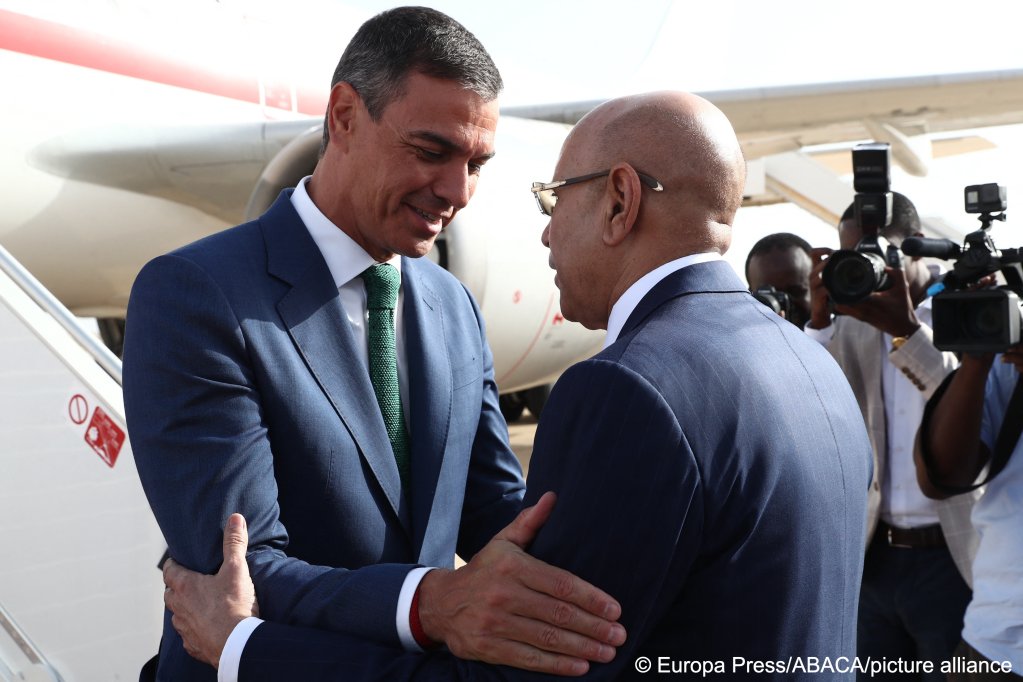
Under the agreement, the funding was meant to support Mauritania’s efforts to "address the arrival of refugees, from reception capacity to protecting the most vulnerable." It was also meant to help promote legal migration routes, "by encouraging mobility" of students, researchers and entrepreneurs.
Part of the agreement between the EU and Mauritania involved strengthening border management. This, according to the EU press release, included "increasing cooperation on search and rescue and strengthening the capacities of the border management authorities." Frontex was going to help with training and provide equipment, promised the EU.
Mauritania was expected to step up its "fight against migrant smuggling and trafficking in human beings." The EU promised "joint investigations, reinforced security and operational cooperation" in order to do this. The EU also promised "strengthened cooperation on return and readmission concerning Mauritanians irregularly staying in the EU, respecting their rights and dignity."
When the joint declaration was signed, Ylva Johansson said that she believed "Mauritania is doing an excellent job in sheltering refugees from neighboring conflicts."
Read AlsoSpain's circular migration policy explained
Refugees and migrants in Mauritania
In 2024, Mauritania was hosting over 139,000 registered Malian refugees, according to UNHCR. An additional 17,000 registered refugees and asylum seekers from 30 different countries live in the capital Nouakchott and the city Nouadhibou.
Because of the volatile security situation in neighboring Mali, since January 2024, Mauritania took in over 110,000 new arrivals from Mali, many of whom live in a camp in Mbera not far from the Malian border in the south-east of the country.
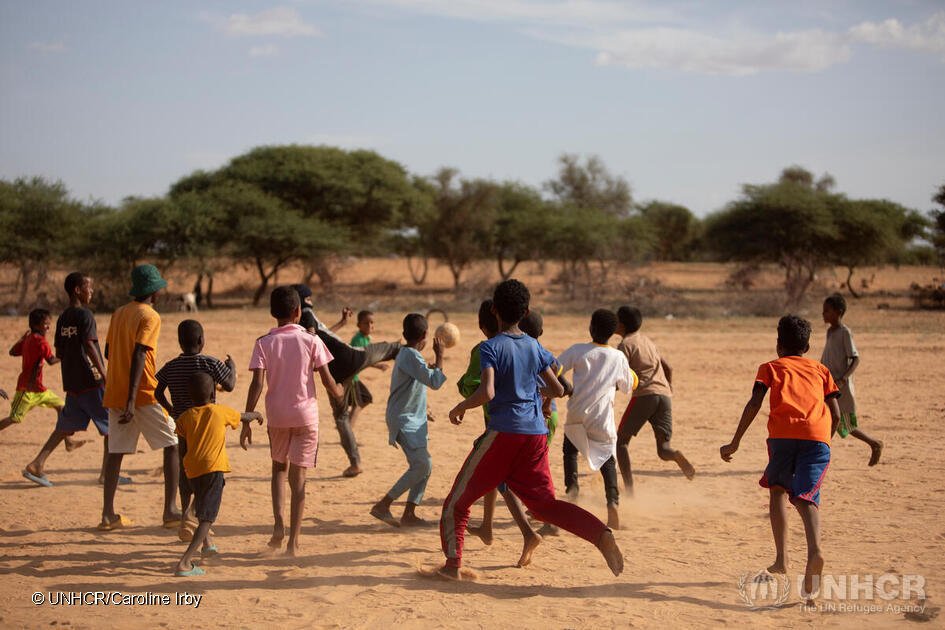
The UNHCR has estimated it will need an additional 45.5 million dollars (around 41.7 million euros) by the end of this year to help fund the services it provides to refugees and displaced people in the country.
The UN body says it is anticipating a "surge in refugee numbers in Mauritania due to Mali’s political instability, climate change and humanitarian issues." In 2025, the UN estimates there are a total of 253,615 refugees, asylum seekers and stateless people in Mauritania. The vast majority had recognized status as refugees, or were stateless (96 percent), the remaining four percent were classified as asylum seekers.
Read AlsoMauritania – a new irregular migration gateway to Europe?
Region, 'insecure and unstable'
According to the UN’s situation analysis, the Sahel region, of which Mauritania is a part, "has experienced protracted and severe humanitarian crises, compounded by the socio-economic effects of COVID-19, climate change and the war in Ukraine."
The security situation in the region is insecure, although Mauritania has remained relatively politically stable. The majority of Malian refugees are women (55 percent) and children (58 percent), reports UNHCR.
The UN agency works with the Mauritanian authorities to issue refugee status certificates and collaborates with local actors to maximize displaced persons’ access to legal aid.
The UNHCR says it has "unhindered access to asylum-seekers and refugees, including in detention facilities."
As well as the vast refugee camps in Mbera, the UNHCR notes that Mauritania is "increasingly facing mixed movements along its coastal cities." In October 2024, the agency said that "over 5,000 individuals have been disembarked or intercepted in Nouadhibou."
Read AlsoMigrants turn to Mauritania as new EU transit route
Mauritanian government denies it works as the 'EU's policeman'
Although the pressure on the Mauritanian authorities does seem to be mounting, in terms of the numbers of refugees and migrants it might be hosting, the authorities denied that they were just carrying out EU crackdown policies. A spokesperson for the government Housseine Ould Meddou told DW: "Accusations that suggest Mauritania has become a kind of policeman for the EU are false. Our cooperation with the EU remains in the field of the fight against people trafficking and migrant smuggling."
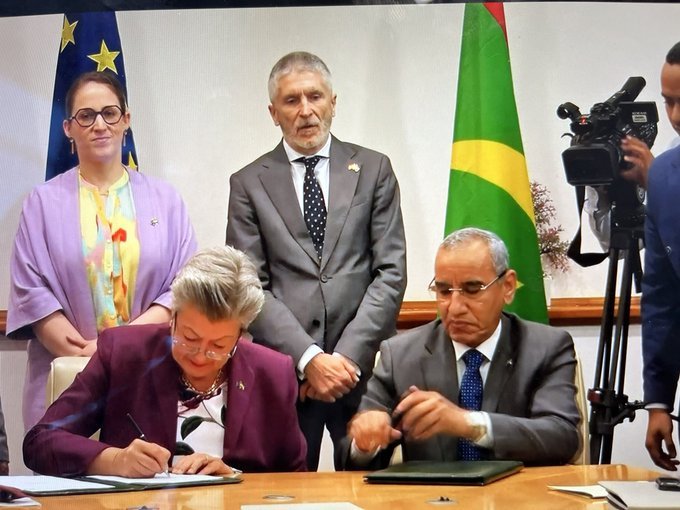
Last week, reports DW, a group of Malian migrants being expelled turned on the border guards at the border between Mauritania and Mali. A spokesperson for the authorities in charge in Mali told DW that he didn’t believe that Malians were being targeted in Mauritania and appealed for "calm." Moussa Ag Attaher, the spokesperson, did however admit that there was currently, "a migration policy underway in Mauritania that is targeting foreigners living in the country."
A spokesperson for the Mauritanian government said that of around 130,000 migrants they registered in the country in 2022, only about 7,000 renewed their residency permit, implying that the rest could now be in the country illegally, and therefore could be subject to expulsion.
